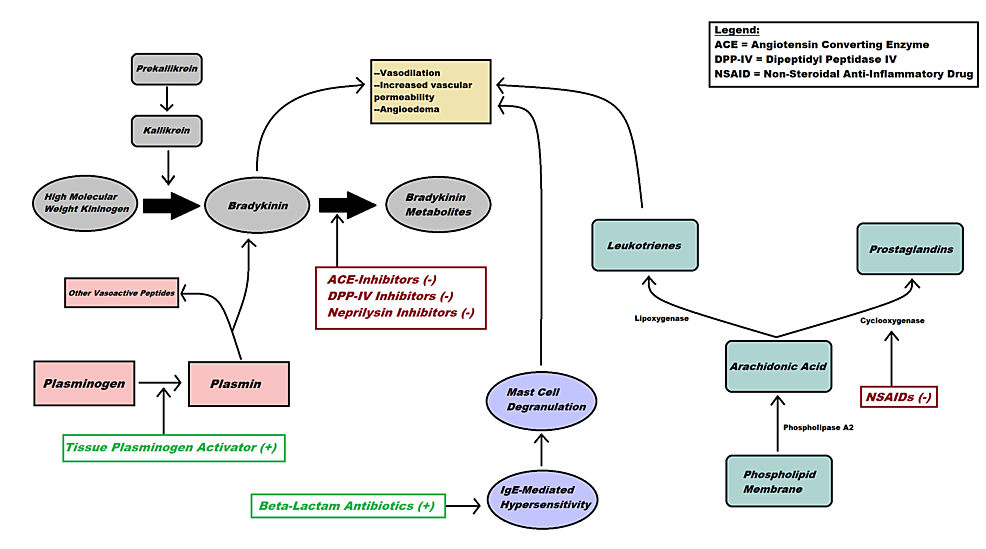Landry L, Witten T, Anwar A I, et al. (November 23, 2023) Cureus 15(11): e49306. doi:10.7759/cureus.49306
Abstract
Angioedema is a localized swelling of the dermis, subcutaneous tissues, and/or submucosal tissues caused by fluid extravasation into these tissues. Angioedema is associated with certain vasoactive molecules and is typically mediated by histamine or bradykinin. It manifests clinically as facial edema, swelling of the extremities and urogenital area, and potential involvement of the larynx, leading to dyspnea and inspiratory stridor, which can become life-threatening. Histamine-mediated angioedema is associated with urticaria and pruritus and will show classic signs of allergic (type 1 hypersensitivity) reactions. Bradykinin-mediated angioedema is often familial (hereditary angioedema) and is more often associated with gastrointestinal symptoms (abdominal pain, nausea, vomiting, diarrhea), edema of the extremities and trunk, and a lack of urticaria and pruritus. Angiotensin-converting enzyme inhibitors (ACEIs) are a class of medications commonly prescribed for hypertension, heart failure, and diabetic nephropathy. ACEIs are associated with an increased risk of angioedema, which can range from a mild reaction to severe and life-threatening. ACEI-induced angioedema is a bradykinin-mediated reaction that can occur in individuals with a genetic predisposition. Other medications, such as angiotensin receptor blockers, nonsteroidal anti-inflammatory drugs, and certain antibiotics, most notably those in the beta-lactam class, can also cause drug-induced angioedema. The present investigation describes current knowledge of the pathophysiology, epidemiology, clinical manifestations, predisposing factors, and management of drug-induced angioedema.


No comments:
Post a Comment